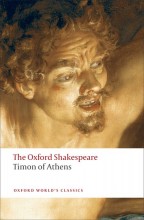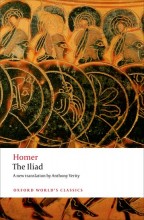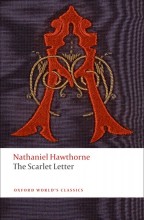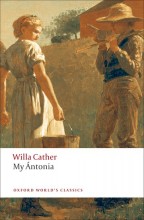Although a man named “Homer” was accepted in antiquity as the author of the poems, there is no evidence supporting the existence of such an author. By the late 1700s, careful dissection of the Iliad and Odyssey raised doubts about their composition by a single poet. Explore more about the “Homeric question” and the influence of these epics in the infographic below.
The post Homer: inspiration and controversy [Infographic] appeared first on OUPblog.
With carefree summer winding to a close, we’ve pulled together some reading recommendations to put you in a studious mood. Check out these Oxford World’s Classics suggestions to get ready for another season of books and papers. Even if you’re no longer a student, there’s something on this list for every literary enthusiast.

If you liked Death of a Salesman by Arthur Miller, you should read Timon of Athens by William Shakespeare. Like Miller’s Willy Loman, Timon does not enjoy an especially happy life, although from the outside it seems as though he should. Timon once had a good thing going, but creates his own misery after lavishing his considerable wealth on friends. He eventually grows to despise humanity and the play follows his slow demise.
If you liked Bury My Heart at Wounded Knee by Dee Brown, you should read The Souls of Black Folk by W. E. B. DuBois. Many argue that each of these texts should be required reading in all American schools. The Souls of Black Folk sheds light on a dark and shameful chapter of history, and of the achievements, triumphs, and continued struggles of African Americans against various obstacles in post-slavery society.
 If you liked Slaughterhouse-Five by Kurt Vonnegut, you should read The Iliad by Homer. Written 2,700 years ago, The Iliad may just be the original anti-war novel, paving the way for books like Slaughterhouse-Five. Illustrating in poetic form the brutality of war and the many types of conflict that often lead to it, the periodic glimpses of peace and beauty that punctuate the story only serve to bathe the painful realities of battle in an even starker light.
If you liked Slaughterhouse-Five by Kurt Vonnegut, you should read The Iliad by Homer. Written 2,700 years ago, The Iliad may just be the original anti-war novel, paving the way for books like Slaughterhouse-Five. Illustrating in poetic form the brutality of war and the many types of conflict that often lead to it, the periodic glimpses of peace and beauty that punctuate the story only serve to bathe the painful realities of battle in an even starker light.
If you liked The Lord of the Flies by William Golding, you should read Oliver Twist by Charles Dickens. This 19th century Victorian novel explores the survival of good, utilizing England’s workhouse system and an orphaned boy as vehicles to navigate its themes. Dickens was considered the most talented among his contemporaries at employing suspense and violence as literary motifs. The result was a classic work of literature that continues to be a favorite for many.
 If you liked The Handmaid’s Tale by Margaret Atwood you should read The Scarlet Letter by Nathaniel Hawthorne. If strong female protagonists are your thing you will probably enjoy Hester Prynne, who endures public scorn after bearing a child out of wedlock, and faces a punishment of wearing a red “A” to designate her offense. Despite the severe sentence, Hester maintains her faith and personal dignity, all while continuing to support herself and her baby—not an easy feat in a 17th century puritan community.
If you liked The Handmaid’s Tale by Margaret Atwood you should read The Scarlet Letter by Nathaniel Hawthorne. If strong female protagonists are your thing you will probably enjoy Hester Prynne, who endures public scorn after bearing a child out of wedlock, and faces a punishment of wearing a red “A” to designate her offense. Despite the severe sentence, Hester maintains her faith and personal dignity, all while continuing to support herself and her baby—not an easy feat in a 17th century puritan community.
If you liked One Hundred Years of Solitude by Gabriel Garcia Marquez, you should read The Canterbury Tales by Geoffrey Chaucer. A colorful and eclectic assortment of characters make the best of a long and arduous pilgrimage by entertaining each other with tall tales of every genre from comedy to romance to adventure. If you enjoy certain aspects of Garcia Marquez’s writing, namely the fantasy elements and large cast of characters in One Hundred Years, you will probably appreciate those same characteristics in this novel, which was written 600 years ago and is still admired today.
 If you liked The Grapes of Wrath by John Steinbeck, you should read My Antonia by Willa Cather. A similar tale of survival in a harsh new land, My Antonia provides the context for a romance between two mufti-dimensional characters. Cather offers readers a glimpse into settler life in the nascent stages of American history, with vivid landscape descriptions and universal themes of companionship and family as added bonuses.
If you liked The Grapes of Wrath by John Steinbeck, you should read My Antonia by Willa Cather. A similar tale of survival in a harsh new land, My Antonia provides the context for a romance between two mufti-dimensional characters. Cather offers readers a glimpse into settler life in the nascent stages of American history, with vivid landscape descriptions and universal themes of companionship and family as added bonuses.
For over 100 years Oxford World’s Classics has made available the broadest spectrum of literature from around the globe. Each affordable volume reflects Oxford’s commitment to scholarship, providing the most accurate text plus a wealth of other valuable features, including expert introductions by leading authorities, voluminous notes to clarify the text, up-to-date bibliographies for further study, and much more. You can follow Oxford World’s Classics on Twitter, Facebook, or here on the OUPblog. Subscribe to only Oxford World’s Classics articles on the OUPblog via email or RSS. – See more at: http://blog.oup.com/2014/08/daniel-deronda-book-design/#sthash.BydtPSF1.dpuf
For over 100 years Oxford World’s Classics has made available the broadest spectrum of literature from around the globe. Each affordable volume reflects Oxford’s commitment to scholarship, providing the most accurate text plus a wealth of other valuable features, including expert introductions by leading authorities, voluminous notes to clarify the text, up-to-date bibliographies for further study, and much more. You can follow Oxford World’s Classics on Twitter, Facebook, or here on the OUPblog. Subscribe to only Oxford World’s Classics articles on the OUPblog via email or RSS. – See more at: http://blog.oup.com/2014/08/daniel-deronda-book-design/#sthash.BydtPSF1.dpuf
If you liked One Flew Over the Cuckoo’s Nest by Ken Kesey, you should read The Trial by Franz Kafka. Psychological thrillers don’t get much better than The Trial, a book that incorporates various themes including guilt, responsibility, and power. Josef K. awakens one morning to find himself under arrest for a crime that is never explained to him (or to the reader). As he stands trial, Josef gradually crumbles under the psychological pressure and begins to doubt his own morality and innocence, showing how Kafka used ambiguity brilliantly as a device to create suspense.
Featured image: Timeless books by Lin Kristensen. CC-BY-2.0 via Wikimedia Commons.
The post A back-to-school reading list of classic literature appeared first on OUPblog.

The Ancient Greeks were incredibly imaginative and innovative in their depictions of scenes from The Odyssey, painted onto vases, kylikes, wine jugs, or mixing bowls. Many of Homer’s epic scenes can be found on these objects such as the encounter between Odysseus and the Cyclops Polyphemus and the battle with the Suitors. It is clear that in the Greek culture, The Odyssey was an influential and eminent story with memorable scenes that have resonated throughout generations of both classical literature enthusiasts and art aficionados and collectors. We present a brief slideshow of images that appear in Barry B. Powell’s new free verse translation of The Odyssey.
-
Aigisthos kills Agamemnon.
http://blog.oup.com/wp-content/uploads/2014/07/Picture1.jpg
In Book 1, the “father of men and gods,” Zeus, speaks of Aigisthos who the son of Agamemnon had killed. He says, “men suffer pains beyond what is fated through their own folly! See how Aigisthos killed Agamemnon when he came home, though he well knew the end” (1.33-37). In this image, Aigisthos holds Agamemnon, covered by a diaphanous robe, by the hair while he stabs him with a sword. Apparently, this illustration is inspired by the tradition followed in Aeschylus’ Agamemnon, where the king is caught in a web before being killed. Klytaimnestra stands behind Aigisthos, urging him on, while Agamemnon’s daughter attempts to stop the murder (she is called Elektra in Aeschylus’ play). To the far right, a handmaid flees. Athenian red-figure wine-mixing bowl, c. 500-450 BC. Photograph © 2014 Museum of Fine Arts, Boston.
-
Penelope at her loom with Telemachos.
http://blog.oup.com/wp-content/uploads/2014/07/Picture2.jpg
Telemachos (Odysseus’s son), stands to the left holding two spears, reproaching his mother. She sits mournfully on a chair, anguished by the unknown fate of her husband. Her head is bowed and legs are crossed in a pose canonical for Penelope. Athenian red-figure cup, c. 440 BC, by the Penelope Painter.
-
Telemachos and Nestor.
http://blog.oup.com/wp-content/uploads/2014/07/Picture3.jpg
Telemachos, holding his helmet in his right hand and two spears in his left, a shield suspended from his arm, greets Nestor (the king of Pylos), who has no information about Odysseus. The bent old man supports himself with a knobby staff, and his white hair is partially veiled. Behind him stands his youngest daughter (probably), Polykastê, holding a basket filled with food for the guest. South-Italian red-figure wine-mixing bowl, c. 350 BC.
-
Odysseus and Kalypso.
http://blog.oup.com/wp-content/uploads/2014/07/Picture4.jpg
The goddess presents a box of provisions for the hero’s voyage. The box is tied with a sash. The bearded Odysseus sits on a rock on the shore holding a sword and looking pensive. Athenian red-figure vase, c. 450 BC.
-
Odysseus, Athena, and Nausicaä.
http://blog.oup.com/wp-content/uploads/2014/07/Picture5.jpg
Odysseus asks for the assistance of the Phaeacian princess Nausicaä while she and her handmaidens are bathing by a river. Nausicaa gives Odysseus directions to the palace and advice on how to approach Aretê, queen of the Phaeacians. In this image, the naked Odysseus holds a branch in front of his genitals so as not to startle Nausicaä and her attendants. On the right, near the edge of the picture, Nausicaä half turns but holds her ground. Athena, Odysseus’ protectress, stands between the two figures, her spear pointed to the ground. She wears a helmet and the goatskin fetish (aegis) fringed with snakes as a kind of cape. Clothes hang out to dry on a tree branch (upper left). Athenian red-figure water-jar from Vulci, Italy, c. 460 BC.
-
Maron gives the sack of potent wine to Odysseus.
http://blog.oup.com/wp-content/uploads/2014/07/Picture6.jpg
Books 9 through 12 are told as flashbacks, as Odysseus sits in the palace of the Phaeacians telling the story of his journeys, from Troy, to the land of the Lotus-Eaters, to the land of the Cyclops. Here we see the beardless Kikonian priest Maron give a sack of wine to Odysseus by which Cyclops is overcome. In his left hand, he holds a spear pointed downwards. His crowned wife stands behind him with a horn drinking cup. The very long-haired Odysseus wears high boots, a traveler’s cap (pilos), and holds a spear over his shoulder with his right hand. To the far left stands a Kikonian woman. South Italian red-figure wine-mixing bowl by the Maron Painter, 340-330 BC.
-
Laestrygonians attack Odysseus’ ships.
http://blog.oup.com/wp-content/uploads/2014/07/Picture7.jpg
Without any wind to guide them, the Achaeans row to the land of the Laestrygonians, a race of powerful giants. In this somewhat dim Roman fresco there are ten of Odysseus’ oared ships with single masts in the middle of the narrow bay, three near the shore, half-sunk, and a fourth half-sunk near the high cliffs on the right. Five of the Laestrygonian giants stand on the shore and spear Odysseus’ men or throw down huge rocks. A sixth giant has waded into the water on the left and holds the prow of a ship in his mighty hands. From a house on the Esquiline Hill decorated with scenes from the Odyssey, Rome, c. AD 90.
-
Kirkê enchants the companions of Odysseus.
http://blog.oup.com/wp-content/uploads/2014/07/Picture8.jpg
From there, Odysseus and his men travel to Aeaea, home of the beautiful witch-goddess Kirkê. Shown here is a seductive Kirkê standing naked in the center, stirring a magic drink and offering it to Odysseus’ companions, already turning into animals—the man in front of Kirkê into a boar, the next to the right into a ram, and the third into a wolf. A dog crouches beneath Kirkê’s bowl. The figure behind Kirkê has the head of a boar. On the far left is a lion-man beside whom Odysseus comes with sword drawn (but in the Odyssey they turn only into pigs). On the far right, Eurylochos escapes. Athenian black-figure wine cup, c. 550 BC. Photograph © 2014 Museum of Fine Arts, Boston.
-
The suitors bring presents.
http://blog.oup.com/wp-content/uploads/2014/07/Picture9.jpg
Penelope sits on a chair at the far right, receiving the suitor’s gifts. The first suitor seems to offer jewelry in a box. The next suitor, carrying a staff, brings woven cloth. The third suitor, also with a staff, carries a precious bowl and turns to speak to the fourth suitor, who brings a bronze mirror. Athenian red-figure vase, c. 470 BC.
-
Death of the suitors.
http://blog.oup.com/wp-content/uploads/2014/07/Picture12.jpg
This is the other side of the cup from Figure 22.1. All the suitors, situated around a dining couch, are in “heroic nudity” but carry cloaks. On the left a suitor tugs at an arrow in his back. In the middle a suitor tries to defend himself with an overturned table. On the right a debonair suitor, with trim mustache, holds up his hands to stop the inevitable. Athenian cup, c. 450-440 BC.
-
Melian relief with the return of Odysseus.
http://blog.oup.com/wp-content/uploads/2014/07/Picture11.jpg
In this “Melian relief” (compare Figure 19.1), Penelope sits on a chair, her legs demurely crossed and her head buried in sorrow. The hatless Odysseus, disguised as a beggar, takes her by the forearm. He is in “heroic nudity” but with a ragged cloak over his arms and back. He holds a staff in his left hand from which his pouch is suspended. Behind Penelope is the beardless Telemachos, and at his feet probably Eumaios the pig herder, seated on the ground and holding a staff, his hat tossed back. The last figure on the left is probably Philoitios, the cow herder from Kephallenia. Terracotta plaque, c. 460-450 BC, Metropolitan Museum of Art, New York; © The Metropolitan Museum of Art. Art Resource, NY.
-
Eurykleia washing Odysseus’ feet.
http://blog.oup.com/wp-content/uploads/2014/07/Picture10.jpg
The old woman, wearing the short hair of a slave, is about to discover the scar on Odysseus leg. The bearded Odysseus, dressed in rags, holds a staff in his right hand and a stick supporting his pouch in his left. He wears an odd traveler’s hat with a bill to shade his eyes. Attic red-figure drinking cup by the Penelope Painter, from Chiusi, c. 440 BC; Museo Archeologico, Chiusi, Italy; Erich Lessing/Art Resource, NY.
-
Melian relief with Penelope and Eurykleia.
http://blog.oup.com/wp-content/uploads/2014/07/Picture13.jpg
After the fight against the suitors, Eurykleia tries to persuade Penelope that her husband has returned. Shown here, the mourning Penelope sits in a traditional pose with her hand to her forehead and her legs crossed. Her head is veiled. She stares gloomily downwards, seated on a padded stool beneath which is a basket for yarn. The purpose of these terracotta reliefs, found in different parts of the Roman world, is unclear. Roman Relief, AD 1st century. Museo Nazionale Romano (Terme di Diocleziano), Rome; Erich Lessing / Art Resource, NY.
Barry B. Powell is Halls-Bascom Professor of Classics Emeritus at the University of Wisconsin, Madison. His new free verse translation of The Odyssey was published by Oxford University Press in 2014. His translation of The Iliad was published by Oxford University Press in 2013. See previous blog posts from Barry B. Powell.
Subscribe to the OUPblog via email or RSS.
Subscribe to only classics and archaeology articles on the OUPblog via email or RSS.
The post Scenes from the Odyssey in Ancient Art appeared first on OUPblog.

The Ancient Greek gods are all the things that humans are — full of emotions, constantly making mistakes — with the exception of their immortality. It makes their lives and actions often comical or superficial — a sharp contrast to the humans that are often at their mercy. The gods can show their favor, or displeasure; men and women are puppets in their world. Barry B. Powell, author of a new free verse translation of Homer’s The Odyssey, examines the gods, fate, divine interventions, and what it means in the classic epic poem.
Fate and free in The Iliad and The Odyssey
Click here to view the embedded video.
What role do the Gods play in The Iliad and The Odyssey?
Click here to view the embedded video.
Who is Hercules and how does he play a role in The Odyssey?
Click here to view the embedded video.
Greek Gods versus modern omnibenevolent God
Click here to view the embedded video.
Barry B. Powell is Halls-Bascom Professor of Classics Emeritus at the University of Wisconsin, Madison. His new free verse translation of The Odyssey was published by Oxford University Press in 2014. His translation of The Iliad was published by Oxford University Press in 2013.
Subscribe to the OUPblog via email or RSS.
Subscribe to only classics and archaeology articles on the OUPblog via email or RSS.
The post Gods and men in The Iliad and The Odyssey appeared first on OUPblog.





 If you liked Slaughterhouse-Five by Kurt Vonnegut, you should read
If you liked Slaughterhouse-Five by Kurt Vonnegut, you should read  If you liked The Handmaid’s Tale by Margaret Atwood you should read
If you liked The Handmaid’s Tale by Margaret Atwood you should read  If you liked The Grapes of Wrath by John Steinbeck, you should read
If you liked The Grapes of Wrath by John Steinbeck, you should read